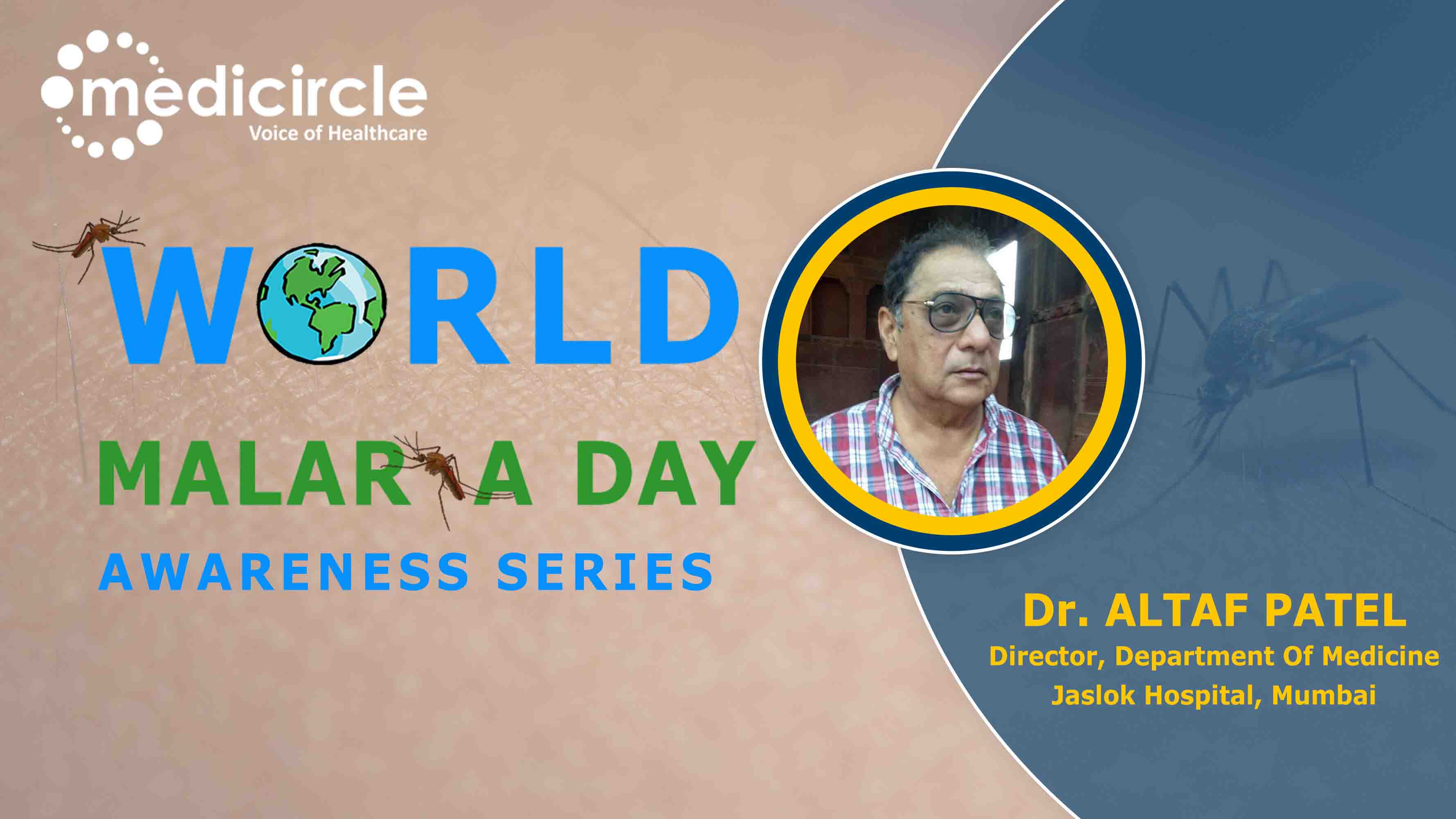Malaria is a mosquito-borne infectious disease that affects humans and other animals. This disease is quite common in Asia. Globally, 3.3 billion people in 106 countries are at risk of malaria. Medicircle is conducting an exclusive series on Malaria on the occasion of World Malaria Day which falls in April to recognize the efforts to control this disease.
Dr. Altaf Patel is the Director of Medicine at Jaslok Hospital Mumbai. He has been engaged in teaching medical students since the year 1977 at both the graduate and postgraduate levels. He has been the examiner for MBBS and MD for the Mumbai University several times. He has published papers in Indian and international journals and has spoken in multiple conferences abroad. He has also been a medical columnist at Mid-Day newspaper and Editorial Columnist at Mumbai Mirror.
Malaria - a bird’s eye-view
Dr. Patel mentions, “Malaria is an infectious disease. It comes from an organism called Plasmodium which is carried by the mosquito. This is an anopheles female mosquito. You get it with a bite, it can't be transferred. When you say infectious, it's not by touch or by air. It was originally thought that malaria came from bad air so the name “mal-aria” came in till we could find out that it was actually from the bite of the mosquito. In the early 70s, during my time training as a medical student, we never saw malaria because WHO declared Maharashtra malaria-free. Unfortunately,malaria-free with pools of water are associated with construction. Now in this situation, they usually ask to put oil and water so that the mosquito cannot survive, but most people don't do it. And that's how we had the resurgence of malaria, which caused us a fair number of deaths,” says Dr. Patel.
Symptoms, diagnosis, and types
Dr. Patel says, “Most common symptoms of malaria are fever with shivering and sweating and then the fever coming down. If you are experiencing it, it's better to start treatment for malaria. A positive blood test confirms malaria, but a negative blood test does not exclude malaria. There are various types of malaria. The common one that we see is the Vivax, and the more dangerous is the Falciparum, which affects the brain and is called cerebral malaria.”
Malaria – treatment options
Dr. Patel informs, “The basic drugs to be used is a drug called chloroquine which is cheap and easily available. Some people prefer quinine for cerebral malaria. It’s a disastrous and dangerous drug to use. You also get the Chinese herbal medication, artemether. This has turned out to be good. In the times of the Vietnam War, the Americans figured out that this herb was effective to treat malaria. So when doctors tell you that herbal medicine is junk, actually much of medicine comes from herbs.”
Precautionary measures to keep it at bay
Dr. Patel mentions, “The strange thing about the female anopheles mosquito that transmits malaria is that it comes out at sunset and remains from sunset to sunrise. You need to wear light clothing because it's less attractive to that, cover your legs and hands as far as possible. Particularly careful should be pregnant women, because the amount of carbon dioxide you generate attracts the mosquito. So, if you are overweight or pregnant, the mosquito can be attracted to you. Dark clothing also attracts mosquitoes. It’s better to use anti-mosquito creams or roll-ons that you get in the market. They somewhat help to avoid the bite,” suggests Dr. Patel.
(Edited by Amrita Priya)

 An overview of Malaria, its signs and symptoms, types, diagnosis, treatment options, and precautionary measures to keep it at bay in words of Dr. Altaf Patel, Director of Medicine, Jaslok Hospital.
An overview of Malaria, its signs and symptoms, types, diagnosis, treatment options, and precautionary measures to keep it at bay in words of Dr. Altaf Patel, Director of Medicine, Jaslok Hospital.







.jpeg)


.jpg)









.jpeg)





.jpg)




.png)



